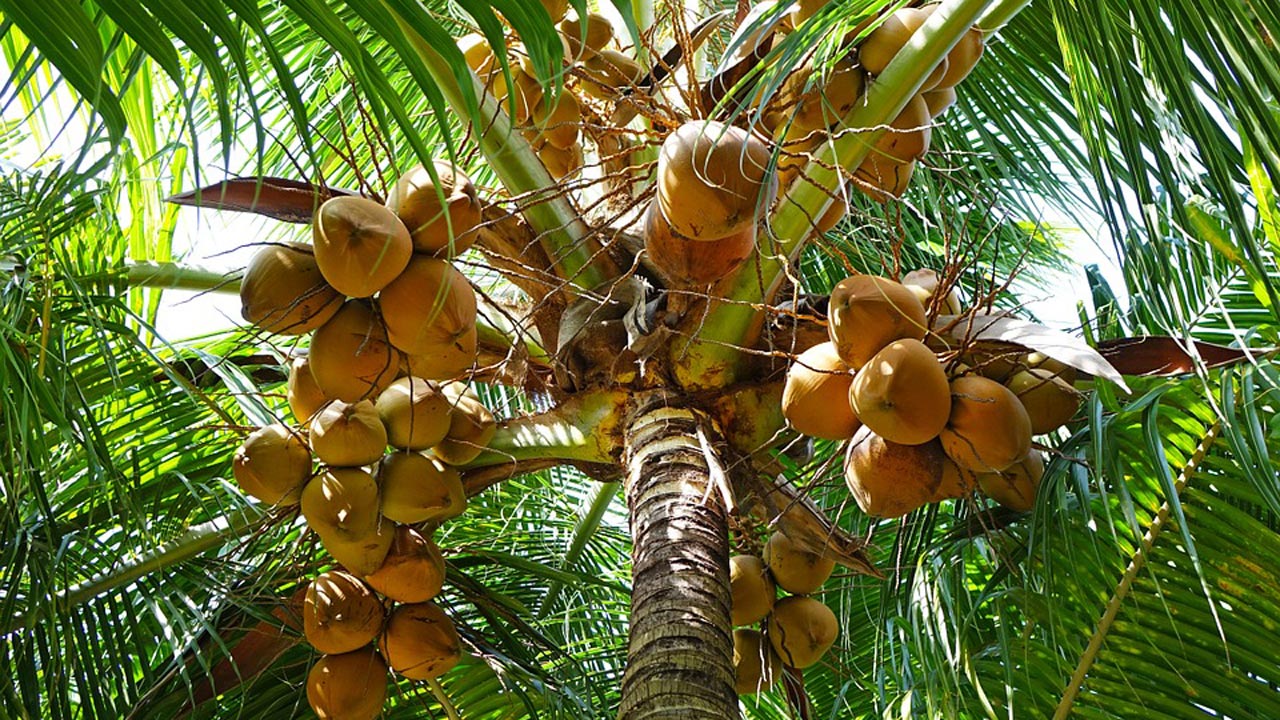
Coconut farmers have raised the alarm over the imminent depletion of coconut trees, if urgent steps are not taken by stakeholders to urgently block the identified loopholes.
Nigeria currently ranks 18th on the world coconut production country index and produces 265,000 metric tonnes of coconut annually, with Badagry, Lagos State, ranking as number one, leading other coastal cities across the country.
They claim that with the rising usage of its stem as building materials substitute, coupled with little or no attention to its development in the agriculture industry, coconut trees might go into extinction in the country, in the next few years.
The Guardian learnt that the usefulness of the ornamental tree as economic resource is gradually running out. A vivid look at its value chain shows that coconut tree is meant for food, medicine and industry and not for building of houses.
Several bye-products like brake pads, paving bricks, foot mats, bags, coconut oil and clutch discs could be obtained from the pulverised coconut shell, even automotive fuel can be extracted from refined coconut oil.
These are considered as just few benefits of the coconut value chain addition, if proper attention were given to its development by the agriculture industry.
But the recent reality on its depletion, without caution is gradually sending fear down the spine of stakeholders, especially farmers. For instance, the rising cost of building materials, which is seriously affecting planks and other roofing materials, has led to adoption of coconut trunks as alternative planks and its fronds as roofing sheets.
The economic recession is not also helping the matter, as those forced out of jobs and those seeking to make ends meet have found a cheap means of getting money, as there are ready-made buyers willing to buy the coconut trees for construction. The trees are already sold for as low as N2, 500 to N3, 000.
Aside the quest for quick money, another thing luring people to the cutting of the trees, according to the Executive Director, Doublem Enterprises Development Centre, Mr. Muhammad Mustafa, is the depletion of the forests, which according to him, has forced people to turn to using the tree as substitute for building houses, which is a wrong idea.
He had warned a few weeks ago that if the cutting of coconut trees for construction works continue, as currently being witnessed in the tree’s zones, its usefulness as an economic resource will not only run out, there is possibility that “in the next 50 years coconut tree will go into extinction because of its depletion and that of our forests.
“It is wrong to use the tree because that would grossly affect the raw materials sector of the economy. If the coconut tree goes into extinction, then it will be difficult to get raw materials to service the manufacturing sector.
“Therefore, there is need to sensitise the people to desist from cutting the coconut trees for building materials.’’
President of Coconut Growers Association of Nigeria, Akinlolu Mufutau told The Guardian that aside the problem of using the trees for construction works, the major threat to them now is the large expanse of land acquired by government for the planned Seaport project in Badagry, which he said had led to felling of matured tress, which had existed for several years.
“I want government to discourage people cutting coconut trees for building of houses, because it is rampant now; government should make sure that the land we are using is secure because majority of our land has been taken for the seaport project. It is a massive project, the number of coconut trees felled there are many.
“The perimeter of the seaport is large and there is still going to be expansion. Apart from the main port, planned to be the largest in Africa, do you know the volume of people that will be coming there, business will be booming there and structures would be sprouting up that would take over the entire coastal areas where we are farming, this is a serious threat to existence of coconut in the country,” he said.
Apart from cutting the trees, another major constraint, according to stakeholders is that there are no young people extracting coconut oil; many of the extractors are old women who do not have working capital.
Is there any way out of the looming loss? The president of the coconut growers, who lamented that as individuals they cannot do anything to discourage the felling of trees, said there is need for sensitisation by government to stop the menace.
This was substantiated by Mustafa, who also said; “there is need to sensitise the people to desist from cutting the trees for building materials.’’
Mufutau appealed to the Federal Government through the Ministry of Agriculture and Rural Development to enhance the capacity of the coconut growers. “It is not only coconut growers they need to assist. They need to identify the growers, after that they should enhance their capacity. They also need to discourage land sellers, who are selling lands where coconuts are grown. There are areas that are meant for farming and areas meant for building, government should discourage those selling lands in the coastal areas.






